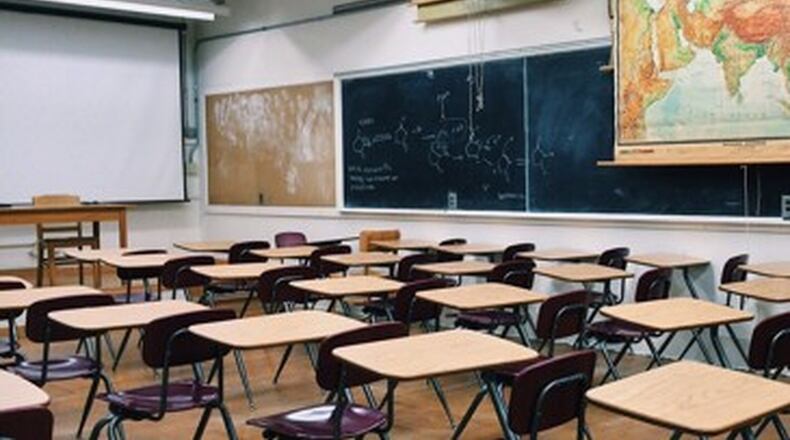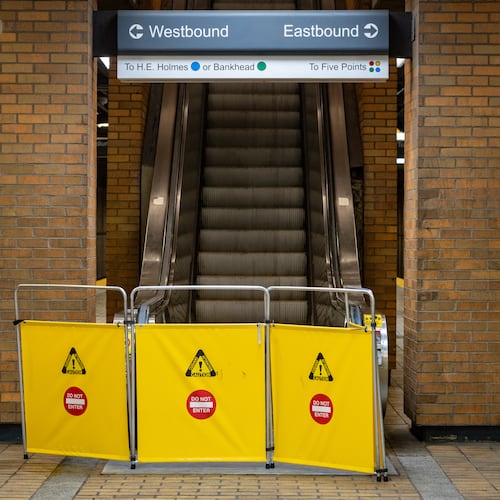Gwinnett County Public Schools quarterly discipline reports have been showing a disturbing trend: Disciplinary hearings are increasing, and so are in-school and out-of-school suspensions.
School district administrators have noticed, and so have many in the community. In response, Superintendent J. Alvin Wilbanks announced a committee will be set up to look at student discipline policies and procedures.
Black Men United for Children & Humanity, a Gwinnett-based education advocacy group, has presented several complaints to the school board. They’ve also sent letters to Wilbanks as well as board members seeking solutions to the disparity in disciplinary actions against students of color.
“This ongoing pattern of discrimination in student discipline has continued for over two decades with no end in sight. In fact, the discrimination has actually increased and you have remained silent,” wrote James Taylor, president of BMUCH. “At this point, you can continue to remain silent to the ongoing discrimination against children-of-color OR you can take a bold step and solve the problem.”
At Thursday’s board meeting, Wilbanks announced the planned committee.
“For many years a primary objective has been to ensure that the student conduct behavior code is firm, fair, and flexible. The Board of Education and I have confidence in our discipline code, in the training our employees receive in implementing it, and in how discipline is carried out in our schools,” he read from a prepared statement. “However, we are hearing from some in the community who have concerns that a disproportionate number of students of color are being disciplined. They also have questions about the consequences given to students who misbehave. We are sensitive to their concerns and want to be sure we do not have any blinders on when it comes to an issue that impacts students in such significant ways.”
Taylor said he is encouraged by this move. “It shows that our concerns haven’t fallen on deaf ears,” he said.
Taylor, retired from Gwinnett Schools, once led the student discipline department.
“It wasn’t perfect when I was there,” he said. “But at least I challenged principals who sent students to disciplinary hearings for the smallest infraction. I don’t see much pushback now.”
He said, “Of course there are students who need to go to alternative schools or need to be suspended, but we need to think of ways to focus less on punishing and more on reforming.”
Marlyn Tillman, co-founder of Gwinnett SToPP, a grassroots education civil rights organization, isn’t as optimistic. “There was a similar committee last year that really didn’t accomplish a thing,” she said.
But that didn’t stop Tillman from requesting a seat on the committee and suggesting the types of people needed to make this go-round count for something.
“Hopefully, the committee will be well rounded and include researchers, restorative justice practitioners, and attorneys with a knowledge of model school discipline codes and practices,” she wrote in an email to Eric Thigpen, executive director of the district’s department of academic support. He’s the one who presents the discipline reports.
According to Wilbanks, the committee will be chosen in December and conclude its work by April 1. Thigpen will chair the committee and his boss, Steve Flynt, associate superintendent for school improvement and operations, will be an ad hoc member. The remaining members will include employees, parents, students, and community residents.
With most infractions committed by middle schoolers, freshmen and sophomores, Thigpen pointed out that in-school suspensions have increased by nearly 2,000 in the first quarter of this school year from the same time frame a year ago.
But Taylor and Tillman are just as concerned that the youngest students are being suspended. Last year no elementary school students were sent before disciplinary hearings in the first quarter of school. This year there have been five.
“We have to find ways not to throw out the baby with the bath water,” said Taylor. “There’s got to be a way to turn most of these kids at least into productive students.”
Tillman’s organization has long held that many school systems have a school-to-prison pipeline and the discipline numbers show it’s getting worse.
“Why do we always assume that the solution is in fixing the child?” she said. “If you put a fish in contaminated water it can’t thrive. Let’s take a closer look at the school culture and climate and see if changes in those areas can turn these numbers around.”
About the Author
The Latest
Featured



